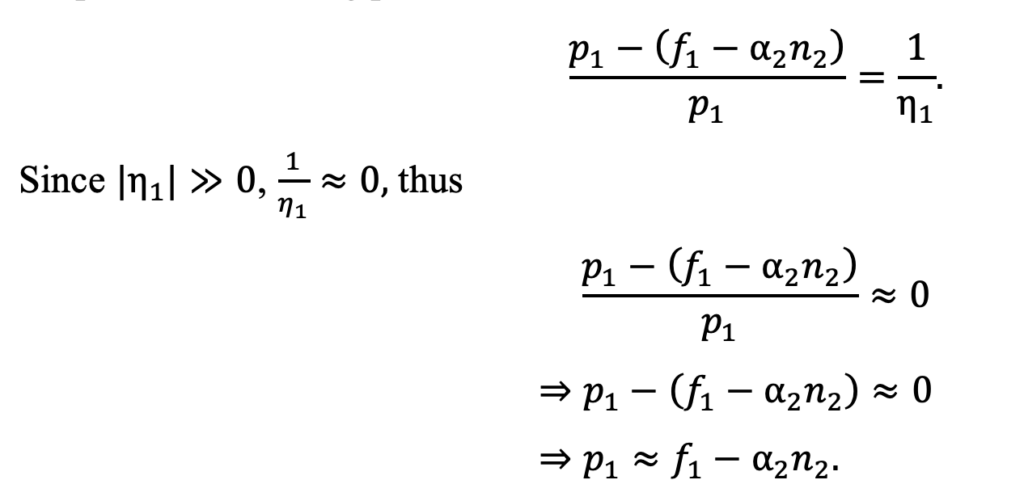Julian Funaro 25′
This Summer, I have assisted Professor Ge in his ongoing undergraduate level textbook project entitled Industrial Organization: Theory and Practice, 6th Edition. My work consisted of three key concepts to industrial organization.

First, I wrote an outline for a section on two-sided markets. Two-sided markets consist of one or more intermediaries, called platforms, that allow for transactions between two groups. For example, eBay is a platform that allows for transactions between buyers and sellers. Much of the required mathematics to model two-sided markets is not suitable for undergraduate economic students. Hence, my task was to select a basic model and derive the necessary math needed to find profit-maximizing prices for two-sided markets that can be understood by students who have taken an introductory class in microeconomics. Then, I used the model to explain the pricing strategies of Yellow Pages.
Next, I expanded the content on network economics. The network effect occurs when the value of a good or service increases as more people use it. For example, a larger number of agents on a social media platform increases the number of possible connections, thus increasing the potential benefit agents gain from joining the platform. We can describe a network with a graph consisting of a series of nodes connected by links. I used my knowledge in graph theory to help students’ further understanding of network economics.
Finally, I wrote an outline for a section on status quo bias. In standard theory, agents are assumed to be rational. However, their bounded rationality limits their ability to make rational decisions all of the time. One shortcut agents use is a bias towards the status quo, resulting in many economic consequences.
I will be continuing my research with Professor Ge in the Fall 2024 semester.
